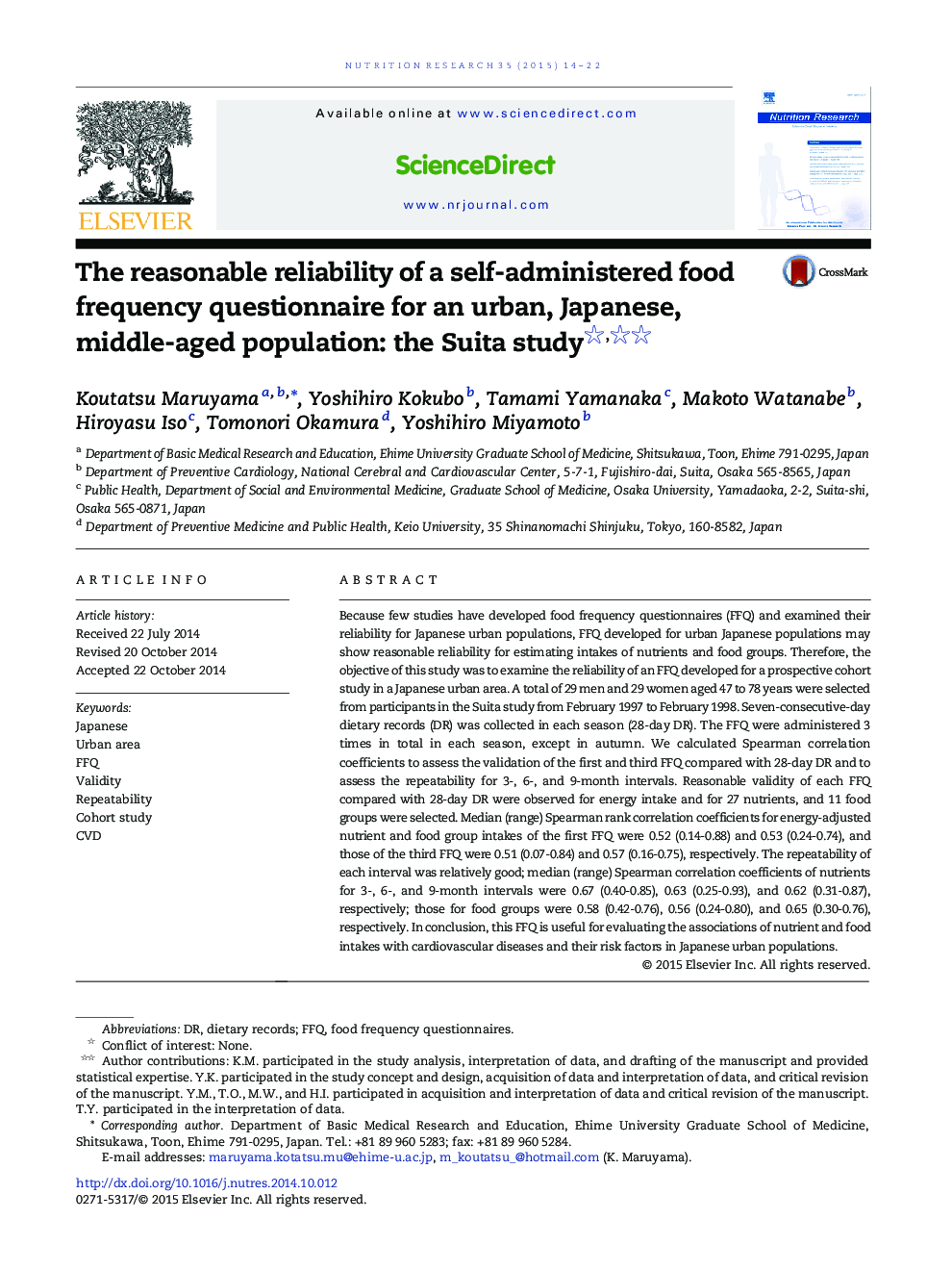| کد مقاله | کد نشریه | سال انتشار | مقاله انگلیسی | نسخه تمام متن |
|---|---|---|---|---|
| 2808952 | 1157986 | 2015 | 9 صفحه PDF | دانلود رایگان |

Because few studies have developed food frequency questionnaires (FFQ) and examined their reliability for Japanese urban populations, FFQ developed for urban Japanese populations may show reasonable reliability for estimating intakes of nutrients and food groups. Therefore, the objective of this study was to examine the reliability of an FFQ developed for a prospective cohort study in a Japanese urban area. A total of 29 men and 29 women aged 47 to 78 years were selected from participants in the Suita study from February 1997 to February 1998. Seven-consecutive-day dietary records (DR) was collected in each season (28-day DR). The FFQ were administered 3 times in total in each season, except in autumn. We calculated Spearman correlation coefficients to assess the validation of the first and third FFQ compared with 28-day DR and to assess the repeatability for 3-, 6-, and 9-month intervals. Reasonable validity of each FFQ compared with 28-day DR were observed for energy intake and for 27 nutrients, and 11 food groups were selected. Median (range) Spearman rank correlation coefficients for energy-adjusted nutrient and food group intakes of the first FFQ were 0.52 (0.14-0.88) and 0.53 (0.24-0.74), and those of the third FFQ were 0.51 (0.07-0.84) and 0.57 (0.16-0.75), respectively. The repeatability of each interval was relatively good; median (range) Spearman correlation coefficients of nutrients for 3-, 6-, and 9-month intervals were 0.67 (0.40-0.85), 0.63 (0.25-0.93), and 0.62 (0.31-0.87), respectively; those for food groups were 0.58 (0.42-0.76), 0.56 (0.24-0.80), and 0.65 (0.30-0.76), respectively. In conclusion, this FFQ is useful for evaluating the associations of nutrient and food intakes with cardiovascular diseases and their risk factors in Japanese urban populations.
Journal: Nutrition Research - Volume 35, Issue 1, January 2015, Pages 14–22